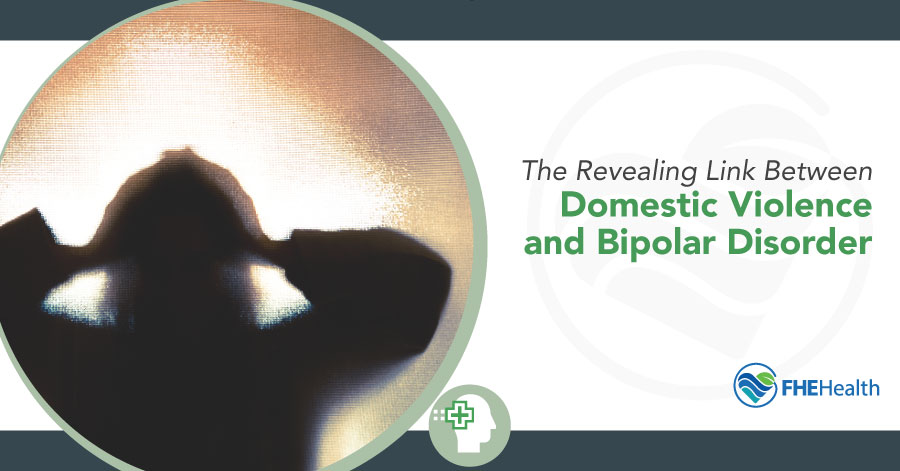
Updated on November 11, 2024
Physically or verbally abusive behavior is never justified, even if the perpetrator has a mental illness. (If you are a victim of domestic violence, seek help immediately—regardless of the circumstances—by calling the National Domestic Violence Hotline at 1-800-799-7233.) There is utility, though, in exploring the relationship between domestic violence and mental health issues. That’s because the topic is complex and prone to misconceptions, especially when “mental health” encompasses not just one but many disorders, each with their own symptomology. In the material that follows, we’ll explore just one facet of this multi-faceted subject, by looking at it through the lens of bipolar disorder and studies into its relationship with domestic violence.
3 Potential Misconceptions to Avoid and Why
Before taking a closer look at some of the existing literature, bear in mind that this topic can be sensitive. Domestic violence and bipolar disorder, simply by occurring next to one another in a sentence, can feed various misconceptions. By exploring their relationship, we are not suggesting that:
- all people with bipolar disorder are violent;
- a diagnosis of bipolar disorder necessarily makes you more abusive than people with other mental health conditions;
- people with bipolar disorder are always perpetrators of domestic violence (as opposed to victims).
First, the majority of people with bipolar disorder are not more violent than the general population. In fact, in one of the most comprehensive studies of violence and mental illness, the “MacArthur Violence Risk Assessment Study,” violence was only associated with two clinical symptoms in particular: “command hallucinations,” or psychotic voices telling the person to harm someone else; and psychopathy, a lack of empathy or antisocial behavior not typically understood as a serious mental illness. Each of these symptoms can occur with other mental illnesses and are not defining symptoms of bipolar disorder. In other words, most people with bipolar disorder do not have these symptoms typically associated with higher violence.
Second, a diagnosis of bipolar disorder does not necessarily make you more abusive then people with other mental health conditions. In fact, some research has stated that any serious mental illness can correlate with a higher risk of violence, although mosot people with a psychiatric diagnosis are not violent. For example, one study performed in Sweden found that across the board, people suffering from mental and behavioral health conditions were more likely to perpetrate abuse against their partners.
Third, while some studies report a higher frequency of domestic violence among people with certain mental health conditions, including bipolar disorder, the other reality is that victims of domestic violence are also at higher risk of developing bipolar disorder. In this sense, the relationship between bipolar disorder and domestic violence is itself complicated. In some cases, the person with bipolar disorder may be a perpetrator. In other cases, they may be a victim. It’s therefore important to avoid stereotyping the role of any person with bipolar disorder in a relationship tainted by domestic violence.
The Effects of Bipolar Disorder on Relationships
Meanwhile, the diagnosis of bipolar disorder usually will affect a person’s close relationships. Bipolar disorder (BD) is a mood disorder that causes the person affected to fluctuate between manic periods of high energy and excitement and depressive periods of low energy, sadness and other symptoms commonly associated with depression. It’s a chronic brain disease that demands lifelong treatment, often involving medication to control changes in mood.
When your spouse or another close family member receives a bipolar diagnosis, it can be hard to take. Living with someone who has bipolar disorder can also be difficult, especially if the condition goes untreated. In many cases, with the proper treatment, your loved one can live life in control and as the person you know them to be.
The Prevalence of Physical or Emotional Abuse In a Bipolar Relationship
Some research has found there to be a higher frequency of physical or emotional abuse among relationships affected by bipolar disorder in particular. For example, an article published in Psychiatric Times found that people with BD are more likely to be violent toward other people in their lives. But what does this link mean? A few explanations have to do with the behavioral changes that may (or may not) occur with BD, depending on the person.
Perceiving Support as Confrontation
As we’ve explored in the past, people with bipolar disorder may be in denial about changes in their behavior or personality. This may cause the person affected to see a partner’s attempts to be supportive of their condition as confrontational, causing them to lash out verbally or physically.
Uncontrollable Mood Swings
Most people who’ve been in a relationship understand how it feels when their own bad mood makes them easily annoyed by their partner. We might look back on arguments later and wonder what started them. For people with BD, this dynamic is taken to more of an extreme.
When a bipolar person is experiencing a manic episode, they may experience feelings of happiness and motivation, but this sudden burst of energy can also manifest itself in a negative way.
The same applies to behavior during a depressive episode. When a person is feeling low or depressed, they may experience apathy and stop caring about other people’s feelings temporarily, which may lead them to say something hurtful they wouldn’t otherwise say.
The delicate nature of a relationship is part of what makes it so amazing when people can share trust and love. However, when one partner is struggling to control their mood and behavior due to an untreated mental health condition, it can put the relationship’s stability on a knife’s edge.






